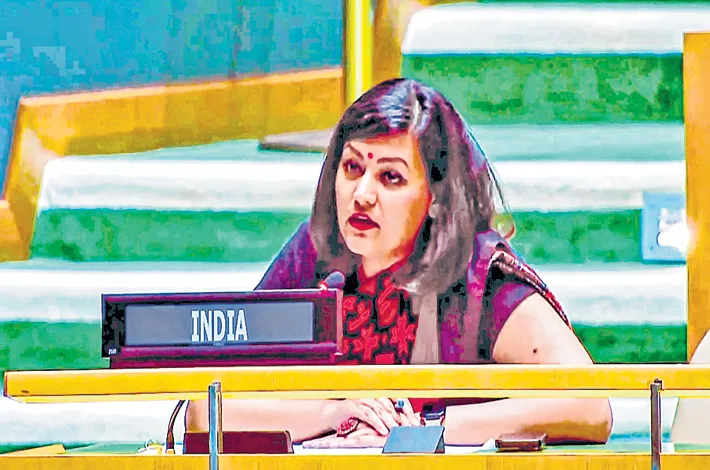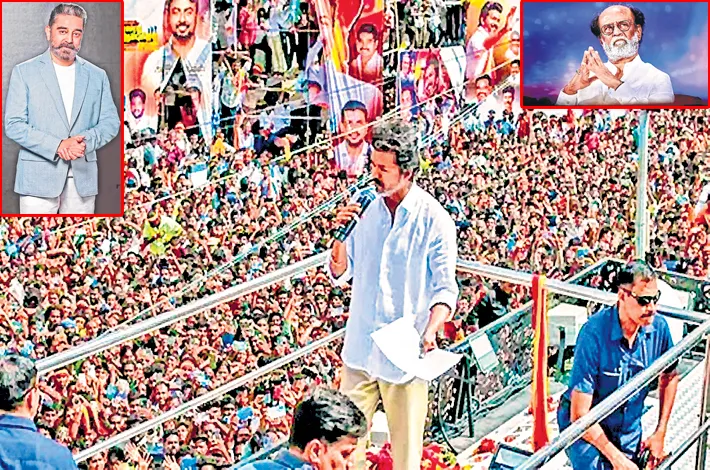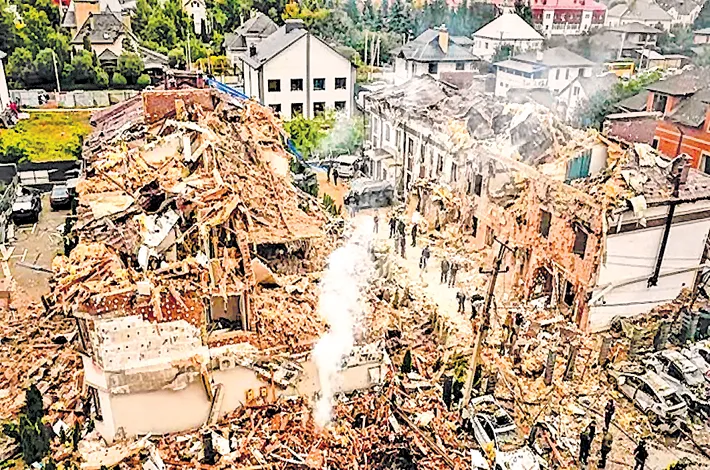‘Destroyed runways look like victory?’ India mocks Shehbaz
28-09-2025 12:00:00 AM

First Secretary in India’s Permanent Mission to the UN Petal Gahlot speaks as she delivers India’s Right of Reply in UN General Assembly in New York on Saturday.
Agencies New York
In a searing rebuttal at the 80th UN General Assembly, India delivered a strong condemnation of Pakistan Prime Minister Shehbaz Sharif’s address, accusing him of glorifying terrorism and peddling “ludicrous narratives.”
Exercising India's right of reply, First Secretary Petal Gahlot from India’s Permanent Mission to the UN dismantled Sharif's claims, especially his portrayal of a “victory” following the recent conflict. Gahlot asserted that Pakistan's military pleaded for a cessation of fighting only after Indian forces devastated multiple Pakistani airbases on May 10. “If destroyed runways and burnt-out hangers look like victory... Pakistan is welcome to enjoy it,” she mocked.
Gahlot labeled the address “absurd theatrics” that cannot conceal Pakistan's role as a hub of terrorism. She cited Pakistan’s recent action at the UN Security Council on April 25, 2025, where it shielded ‘The Resistance Front’, a Pakistan-sponsored terror group responsible for the massacre of tourists in Jammu and Kashmir. She also highlighted Pakistan's long history of duplicity, recalling its decade-long sheltering of Osama bin Laden and recent acknowledgments by Pakistani ministers of operating terrorist camps. Furthermore, Gahlot pointed to senior Pakistani officials publicly glorifying terrorists slain during India's strikes on terror complexes in Bahawalpur and Muridke.
Reaffirming India's zero-tolerance policy, Gahlot stated that India will continue to exercise the right to defend its people and hold both terrorists and their sponsors accountable. She issued a clear path for peace: Pakistan must immediately shut down all terrorist camps and hand over wanted terrorists. Gahlot concluded by reiterating that all outstanding issues between India and Pakistan must be resolved bilaterally, leaving no room for third-party interference.








